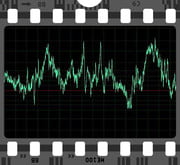
Samplecraze has announced release of their latest production video on the subject of Phase, what is it and how does it affect your mix.
Understanding what phase is and how it behaves is integral to any sound production project. It finds its way into tracking, mixing and sound design, yet it seems to be a confusing subject for many.
Total and partial phase cancellation can result in all sorts of mixing anomalies, so knowing what it is and how to rectify such issues is crucial. Moreover, phase problems can result in summing and masking that can instantly murder your mix.
But it’s not all doom and gloom – phase can be used to create new sonic textures and change stereo width.
This video takes you through the madness that is phase, explaining in detail what it is, how and why issues happen, and how to correct them, both when working with individual sounds during the design process and with multiple tracks during mixing and production.
Phase features
- Sine waves: the relationships between frequencies and how their phase affects all audio.
- Cycle counts: how the phase of one waveform affects the cycles of another.
- Total and partial phase cancellation: how to detect and correct it.
- Summing and cancellation of frequencies and their harmonics.
- Aligning audio from mic recordings to correct phase.
- Delay Compensation: using specific utility plugins, and realigning to correct timing errors.
- Polarity Inversion: why it happens, how it affects mixes and summing, and how best to correct it.
- Using phase cancellation in reverse to realign out-of-time audio.
- Using phase in sound design: creating new textures through layering, cancelling and summing of frequencies.
- Using maths to determine cycles and frequencies: which frequencies get cancelled and which are summed?
- Using phase to create stereo width: examples used are snares etc…
- Using a spectrum analyzer to calculate summing and cancellation of frequencies.
The Phase video tutorial is available to purchase as a download for £3.99 GBP.
More information: Samplecraze



